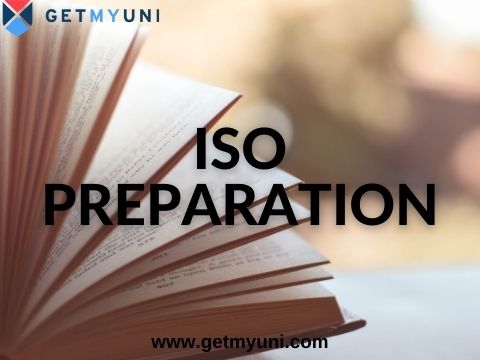The International Science Olympiads are a group of worldwide annual competitions in various areas of the formal sciences, natural sciences, and social sciences. The competitions are designed for the 4-6 best high school students from each participating country selected through International Science Olympiads, except for the IOL. The selection will satisfy the following criteria; two teams per country, the IOI, which allows two teams from the hosting country, and the IJSO, which is designed for junior secondary students. Early editions of the Olympiads were limited to the Eastern Bloc, but later they gradually spread to other countries.

Follow the preparation tips to ace the ISO Exam conducted by HBCSE.
How To Prepare For NSO?
Students can follow the below preparation tips to perform better in the Science Olympiad Exam.
- Understand the ISO pattern: The students must know the patter of the ISO exam and start preparing for it.
- Understand the standard of questions: The questions test the students' logical and observational skills besides conceptual knowledge. There will be no direct questions, but rather an application of a previously studied concept is more likely to form the base of a question.
- Know the relevant books: You must thoroughly study course books suggested by your school board (ICSE/CBSE/State Board). In addition to this, you can refer to books available for Olympiad preparation to get a good rank in ISO.
- Practice sample papers: If you appear for the first time or a regular at ISO, practice the previous year's papers beforehand. Solving the sample papers will give you a fair idea of the pattern of questions asked. They are also good for improving the pace of attempting the paper in the given time. The sample papers can be obtained from the official website.
- Collection of study material: Get your study material prepared in advance. Do not waste your time trying to find study materials at the last moment.
- Start preparing from today: Most students who wish to climb NSO level 1 already started preparing for the exam.
- Time management: Prepare a timetable and stick to it. Practice all kinds of topics. Work on your weaker areas. If you do not want to overload yourself, start preparing well in advance.
- Patience: Success is not a one or two day case in any field, including ISO. It requires a lot of hard work and continuous effort. If you do not see success, in the beginning, do not give up. Continue to push yourself. Soon the results would be better.
- Regular study: To make your concepts crystal clear in your minds, you have to study regularly.
ISO Reference Books
HBSCE Science Olympiad Exams have a higher difficulty level, and students can follow the below-prescribed books to start your preparation.
- Indian National Physics Olympiad – Theory Problems (1998 – 2005), Vijay A. Singh, and Shirish R. Pathare.
- Indian National Physics Olympiad – Theory Problems and Solutions (2006 – 2009), Vijay A. Singh and Praveen Pathak.
- Experimental Problems in Chemistry, Savita Ladage, Swapna Narvekar and Indrani Sen.
- Indian National Biology Olympiad -Theory Papers (2002-2004), Rekha Vartak and Anupama Ronad.
- Indian National Biology Olympiad -Theory Papers (2005-2007), Rekha Vartak and Anupama Ronad.
- Question Papers of Indian National Astronomy Olympiad (1999- 2008) Aniket Sule, Anand Ghaisas, and M. N. Vahia, Manovikas Prakashan.
- Problems and Solutions of International Olympiad on Astronomy and Astrophysics (2007 -2014), Editor: Dr. Aniket Sule, Universities Press India Pvt. Ltd
Importance of Science Olympiad
Olympiad Examinations help identify a child’s capability and real potential to survive better in today’s modern competitive world. They motivate students to endeavour for a better and deeper understanding of scientific facts to enhance their reasoning, analytical, and problem-solving skills. They also bring out the areas lacking proficiency so that a proper orientation can be given to improve in that area.
Note: For any queries/questions on Olympiad Exam, leave your comments below.
